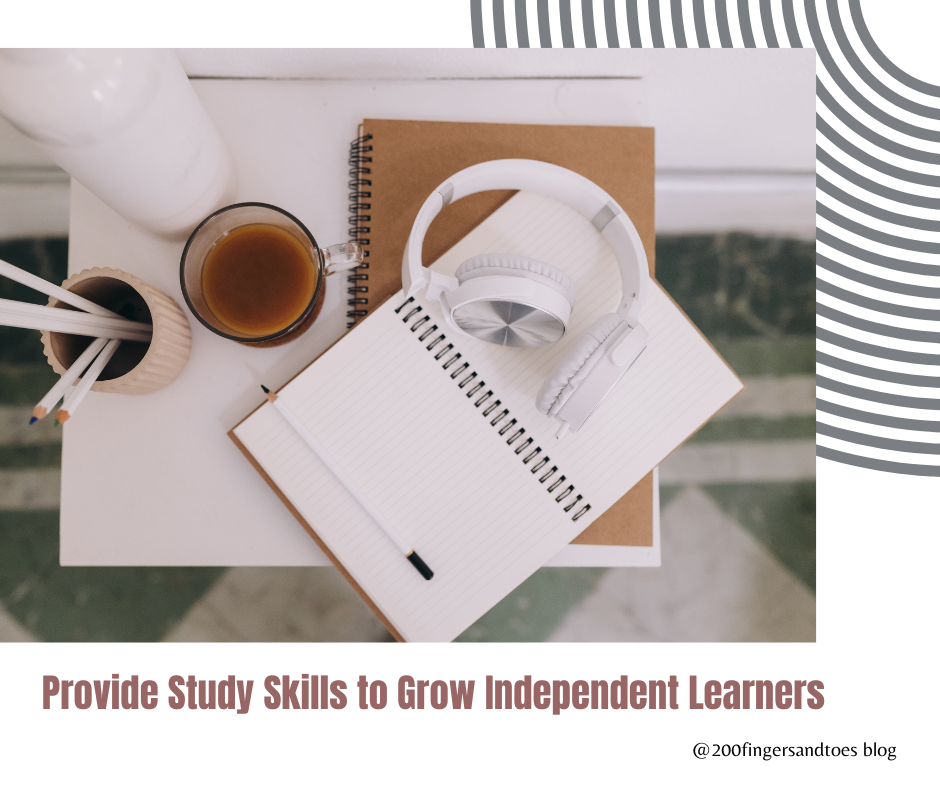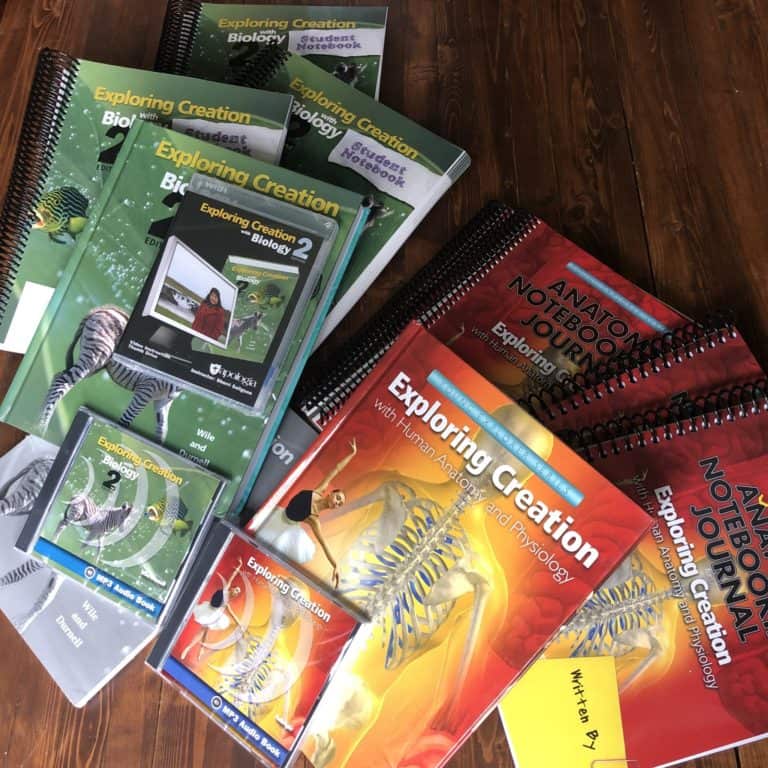Want Independent Learners? Focus on these Skill Builders.
We may earn money or products from the companies mentioned in this review or post, but all opinions are our own.
Too many parents ask for a “hands-off” curriculum for middle school and even elementary-aged homeschooling children. While I understand the need to continue working or the fear that you “don’t know enough” to homeschool successfully, homeschooling is a serious commitment for your whole family to consider. The truth is, a truly hands-off curriculum does not exist, and that is great news! Homeschooling is all about strengthening families and developing the skills you all need for life.
If you want your child to learn and develop excellent work habits, focused study skills, and growth in their problem-solving skills, they will need your guidance to become independent learners.
Independence is the fruit of applying skills. Life skills like assignment planning, time management, self-discipline, study habits, and research skills were learned in elementary school. The better the foundation, the more likely your students will be ready to be independent learners.
Some students need you as a guide and a guardrail for longer. Your job is to ensure they have access to the skills they need each year you homeschool. In this article, I will share some skills to help your teen transition to working independently.
Want to hear me speak on the topic? You can watch my workshops HERE at the Life Skills Leadership Summit. (My talks will be available LIVE at 10 a.m. and forever with a VIP PASS upgrade.) I speak a few times a year and love creating actionable materials to connect with new and veteran homeschooling families like yours.
Provide Study Skills to Grow Independent Learners
First, help them understand HOW their school book works.
Identify things like the instruction box, expected vocabulary words in bold, where the glossary is, using indexes, etc. Walking through the materials at Innovation will help your child feel confident in handling more independence. Answer the question of where to go for specific information.
We forget that we had to be taught how to find Figure 1.3 in our textbooks back in the day. Don’t take for granted that your child knows how a textbook works. Going through the first few chapters together is a great way to gauge how the material is presented, the layout, and how your child is responding to the text.
It is OK if they are a little underwater in the beginning, but they need your support and assurance to help them build the skills they need to meet the assignment’s requirements. Don’t be afraid to allow them to experience difficulty, but support them in finding answers to their problems and setting themselves up to succeed.
Ask questions like, “Why do you think you were unable to complete this assignment?” “What can we do differently next time to have a better outcome?” Let them come up with some ideas. You will be surprised at how much more responsive they are to their own suggestions.
Questions = Less Nagging +More Success

Secondly, help them use their notebook.
Build the habit of keeping all of their work in a notebook. Create a tab for each subject they are learning, and place lined paper for note-taking. Expect notes to be taken. Ask to see them.
Teach them about what information should be written in notes. Spending a few months developing good study skills, note-taking, and organization skills is never wasted. You can print prompts for the subject you are studying for younger children to help get them started.
These skills lay the foundation for growing independent learners and support your students.
••• They need clear expectations in their school work, and you are the source •••
Your middle schooler needs to grow their tool chest with foundational study habits to help them dig deeper.
Reading is another foundational skill your child must master to become independent in their lessons. How do you ignite the reading habit? You can read this for more ideas.
How Much Independence to Expect?
Homeschooling in the early years is a hands-on endeavor. There are many options for parents today, but your children will need you. Even if you choose an online curriculum, you are responsible for getting your students set up and ensuring they are logged in and in the right location/time/site. You will continue to follow up with assignments and field questions, find resources, buy glue sticks, and so on.
You can NOT be completely hands-off in your homeschool.
I would go so far as to say WHY would you? Your kids are amazing, intelligent, funny, inquisitive, and inspiring. If you are beginning homeschooling, you are in for a treat. Your kids NEED you. You are the most critical person in their life. They are looking to you for clues about responding to the world around them. The lessons you learn together will live with them forever, not like the area of a triangle, but the overall scope will become the fabric of their future personality. That is a weighty demand.
You are going to lead. However, you can equip your children to be prepared to work independently as they mature.
As a CEO knows the company’s direction, you know your homeschool’s end goals. You will set up projects that help your homeschool reach these long-term goals. You are in staff training for the world to come and the Kingdom in which you already reside.
Well-trained employees are a pleasure to work with, and well-trained students are fun to teach. Skip training, and… well, you know what that feels like, it is no fun.
What are realistic expectations?
Elementary students can come to school time prepared for the day. Focus on creating personal hygiene routines and rhythms in your day. Building anticipation for the NEXT thing to do will help younger children transition throughout the day.
What work can independent learners do?
Elementary students can do daily copy work after being fully instructed on handwriting. Your child can have a creative corner to do artwork independently, followed by cleaning up and putting away supplies. Your child can read to a sibling, the family pet, or you while you do light chores (fold clothes, dishes, food prep). An elementary student can do time challenge worksheets with simple math problems. Games and physical activities are an excellent addition to this age group. You can play with them until they show understanding.
Middle school students can keep a daily checklist of expected work and a list of work to do independently. They can choose from these activities when they are busy or when they have completed their tasks.
Options for their independent work include reading chapter books for their core subjects, Lapbook, LA workbooks, online topics or lessons, Science workbooks, electives, art, games, handwriting, and any item you have completed giving instructions for.
In the middle years, I schedule check-in times for each student daily, and we have a weekly check-out plan in place so they know what time they are expected to be free for weekend plans.
Build Accountability with Clear Expectations

Click HERE to Grab your FREE Accountability Pages from My Own Mom Binder
Give them Choices
Allowing middle schoolers to influence their homeschool curriculum with areas of study and elective choices balances these growing academic demands.
Read this series next for even more help; we discuss in depth how to build accountability for kids of every age!
Don’t forget to grab your Accountability Sheets from my 30 Days to Homeschool Renewal Course and create a new standard for your homeschool today.




